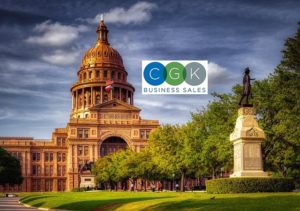Business Challenges in Austin TX and How to Fix Them

Business Challenges in Austin TX and How to Fix Them
As Austin’s workforce adapts to economic challenges brought about by the pandemic, many of the city’s business leaders are also recuperating—while planning for growth and accommodating hybrid work models. While the economy recovers and businesses move more operations online, business owners and potential buyers should be aware of these trends and their effects on growth and success. This article discusses some of the business challenges in Austin TX and how to fix them.
Logistical Issues Affecting Operations
Industries across the board have been faced with operational delays. For instance, a worldwide computer chip shortage has interrupted Austin’s semiconductor supply—which forms the foundation of many of the city’s technologies. Logistical complications continue to increase the cost of doing business, and prices are still rising. When products are imported but shipments are delayed due to interruptions in logistics, business owners—and then consumers—must absorb the extra cost. For the greatest chance of success, consider working with a business broker when preparing your company for sale.
Increased Government Oversight
Even in a freewheeling city like Austin, government rules can get more strict every year. Many of these regulations focus on the environment. For instance, the Clean Air Act requires companies to remove air pollutants that affect the ozone layer. While cleaner air is a good thing, the rule can be a real challenge for Austin business owners who are short on efficient vehicles and eco-friendly experience.
Federal Taxes
Does it seem as if the federal government gets more of your paycheck every year? You’re not imagining it! Under current laws, the current tax rate for C-corps is a flat 21%, plus individual income taxes on dividends. While pass-through entities do not have corporate income taxes, they can have much higher personal rates, if the owner makes a significant amount of money. While Texas has no personal income tax, knowing federal tax rates and how various entities are taxed will help business owners and prospective buyers minimize the expense of paying them.
The National Economy
Even the most knowledgeable traders on Wall Street don’t know how well the nation’s economy is going to recover from the pandemic. Thankfully, the Small Business Administration provides loans that help startup owners and buyers purchase major equipment and commercial property. These loans do much to reduce economic uncertainty because they reduce finance costs and allow business owners to get the most value for the taxes they pay. By considering economic conditions when making purchases, business buyers can reduce unnecessary risk.
Tax Compliance Headaches
When small businesses are home-based, a home office deduction will increase profits for an owner. However, recordkeeping regulations are time-consuming and frustrating for those with no accounting experience.
For businesses making less than $5 million per year, cash accounting is permissible. Under Section 179, the NFIB (National Federation of Independent Business) says that owners are allowed to deduct the cost when they invest in their businesses.
Cash Flow Concerns
With effective management and better budgeting, this challenge is easily overcome—but it’s still common among Austin’s business owners. The easiest and most effective tip is to keep track of where money is coming from and where it is going. When lenders see that a business owner’s accounting practices are sound, they’re more likely to receive the financial assistance they seek.
A Lack of Passion
The business world can become monotonous, but that shouldn’t stop owners from loving what they do. When a business owner is passionate about their industry, it shows in the quality of their products and services—and in customer loyalty.
If you’re focused on growth, working long hours isn’t a big deal, but those who aren’t motivated are more likely to allow their businesses to fold without a fight. Those who are considering starting or buying a business in Austin should ensure that they’ll be selling services and products they’re passionate about.
Narrow Client Bases
As in other parts of the country, some of Austin’s businesses tend to cater to narrow market segments. Look closely at your customer list; if a few clients are responsible for most of the business’ income, it’s time to broaden your horizons. It’s dangerous for business owners to put all their eggs in one basket, but with a diverse client portfolio, they’re more likely to succeed.
Quality vs. Growth
Despite the logistical and economic challenges posed by the pandemic, Austin’s businesses are booming. Unfortunately, those who don’t plan for production and sales increases are at greater risk of failure. When demand increases and there’s no system in place to deal with the uptick, business owners are at greater risk of falling short. Scalability is important—but owners shouldn’t sacrifice vital qualities to achieve it.
Hiring Difficulties
In Austin and in other parts of the state, business owners are in a hiring crunch. The cost of hiring new workers—including bonuses, taxes, benefits, and equipment—keeps rising, and these obstacles all come to the forefront during salary negotiations. Without workers, companies cannot run successfully, but it’s important for buyers to weigh the profit potential against the cost of hiring.
A Lack of Motivation
When the sale of a business takes more than a month or two—which always seems to be the case—it’s common for owners to lose motivation.
Running a company is hard work; it always has been, and always will be. Once an owner decides to sell, however, they might step back psychologically, but that can be risky. Waiting for the right buyer can be difficult, and it’s hard to sell a business that’s in decline.
Overcoming this obstacle requires an understanding of human nature and a conscious decision to see things through until the end. By making such a decision, sellers can stay focused and mentally engaged throughout the process.
If you’re selling a business in Austin, consider arranging its affairs in a way that allows you to step back from daily operations. Potential buyers want to see proof that the current owner isn’t the only thing keeping the company afloat. After all, unless the owner stays on in a leadership role, they’re the only thing that doesn’t come with the company!
It’s Tough All Over, But Better in Austin TX
As a business owner, it’s important to realize that competitors are likely dealing with many of the same issues you are. A buyer’s responses to these challenges, however, will put them at an advantage—or it will put them at risk. No matter how insurmountable these obstacles seem, they can all be overcome. These are just some of the business challenges in Austin TX and how to fix them. All things being equal, though, Austin is one of the most business-friendly environments in the entire United States right now. However, every city and every business has its challenges. Knowing how to prepare your business for sale in Austin TX to maximize both price and terms is one of the ways CGK Business Sales can help.

